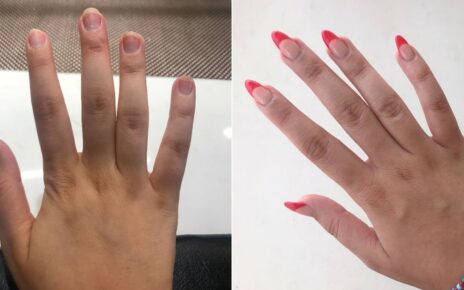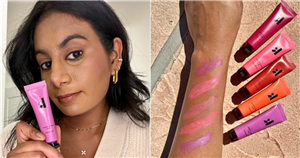Written by Morgan Fargo
A consultant trichologist explains how ageing and genetics, as well as chemical and heat damage, can impact hair.
Over the past few months, I’ve observed something strange happening to my strands. Where before I had largely uniform curls sprouting from my scalp, individual hairs have become coarse, brittle and more prone to breakage. Some are much thicker than others and some much thinner. Occasionally I will pluck a hair from my head to find it has multiple thicknesses along one shaft.
Besides boring my family and friends (each new find necessitated at least five minutes of discussion), I feel a muddle of emotions about the change, largely confusion, worry and trepidation about what’s to come. Is the hair I spent a large part of my adolescence fighting (and my recent adulthood coming to love) about to change for good? Or perhaps, I’ve been doing something that’s irreparably damaging my curls.
To stop the cycle of find-yank-repeat, I asked Philip Kingsley brand president and consultant trichologist Anabel Kingsley to elucidate the reasons why hair texture can change and whether it’s the result of nurture, nature, or both.
Why does hair change as we age?
“Just like our skin, our hair follicles age. Most people’s hair becomes finer as they get older, and as a result, they see a gradual decline in the overall density of their hair. Many individuals notice their hair doesn’t have the body or bounce it once did, and that their hair behaves differently. Texture changes vary and are largely dependent on genes, as well as your general health and diet,” she explains.
According to research from the Boston University School of Medicine, hair damage can also vary between ethnicities and hair types: Caucasian and Asian hair tends to experience visible damage to the “distal hair shaft” (not the root), while African American hair experiences damage at and close to the hair root.
How can heat, chemical or colour damage affect hair texture?
“Any type of hair manipulation, from heated styling and brushing to processing and UV exposure, can impact the health of strands and therefore the way they behave and feel. Damaged and dry hair is always more difficult to manage, and won’t hold a style as easily.
“Colour and chemical processing oxidise strands, weakening its protein structure and decreasing strength. These processes also lift the outer hair cuticle (hair’s protective layer), which can leave strands rough in texture and lacking shine. Heated styling tools can scorch strands and dry them out. Using a harsh hairbrush, or brushing very roughly, can remove parts of the hair cuticle and cause breakage, too.”
If you regularly use heat on your hair, Kingsley recommends adding products that help strengthen and moisturise hair into your routine, such as the Phillip Kingsley Elasticizer and Bond Builder restructuring pre-shampoo treatments.
Can genetics affect hair?
“It very much depends on your genes and your individual sensitivity to age-related hormonal changes. If your mother or father had density changes in older age, it is more likely that you will as well. Different hair textures have different needs. Coiled curls and fine hair are more fragile and vulnerable to damage, so it is important to treat these hair textures with particular care.”
Can using the wrong products change the texture of your hair?
“Using a product that is too heavy can make your hair feel weighty and look limp. Applying products that are not moisturising enough may leave your hair frizzy. However, styling products and conditioners won’t permanently alter the natural texture of your hair – your strands should start to behave as they did before, once you wash them off or change what you’re using.”
When to seek professional help
“If you are concerned, seek help. Do not suffer in silence. Reduced hair volume (also known as androgenic alopecia) is a progressive type of hair loss – the sooner you address it, the better. If your hair loss occurs in patches, your hairline receded in a band-like fashion, or hair loss is accompanied by scalp pain or irritation, it is also important to seek professional advice.”
Main image: Getty
Source: Read Full Article


